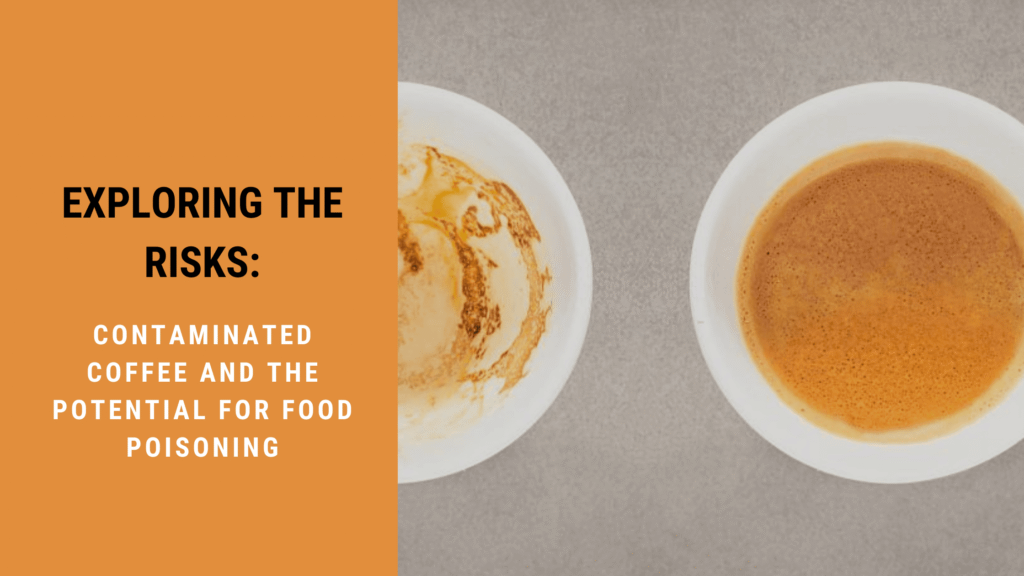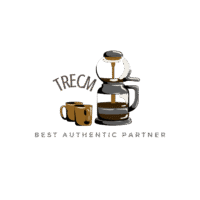Did you know that your morning cup of coffee could potentially give you food poisoning? It may come as a surprise, but the contamination of coffee beans during the cultivation, processing, or brewing stages can result in the presence of harmful bacteria and toxins. This means that if you consume a cup of contaminated coffee, you could be at risk of experiencing the unpleasant symptoms associated with food poisoning. So, next time you reach for that steaming cup of joe, make sure to pay attention to the safety and hygiene practices involved in its production to ensure a worry-free coffee-drinking experience.
The Risk of Food Poisoning from Contaminated Coffee
Coffee is a beloved beverage enjoyed by many people around the world. However, it is important to be aware of the potential risk of food poisoning that can arise from contaminated coffee. Food poisoning occurs when you consume food or drink that is contaminated with harmful bacteria, viruses, parasites, or toxins. In the case of contaminated coffee, the sources of contamination can vary, including bacterial and fungal contaminants, chemical contaminants, contaminated water sources, and even contaminated equipment.
Understanding Food Poisoning
Food poisoning is a gastrointestinal illness that can cause a range of symptoms, including nausea, vomiting, stomach cramps, diarrhea, and sometimes fever. It occurs when you ingest food or drink that is contaminated with harmful microorganisms or toxins. The most common causes of food poisoning include bacteria such as Salmonella, E.coli, and Campylobacter, as well as viruses like norovirus and rotavirus. Parasites and toxins produced by certain bacteria or fungi can also cause food poisoning. The severity and duration of symptoms can vary depending on the specific contaminant and individual susceptibility.
Sources of Contamination in Coffee
Contamination in coffee can occur at various stages, including during coffee bean cultivation and processing, handling and storage, and even during brewing. Understanding the potential sources of contamination is crucial in preventing food poisoning from contaminated coffee.
One source of contamination is contaminated coffee beans. These can become contaminated during cultivation, either through exposure to contaminated water sources, contact with animal feces, or improper handling and storage practices. Additionally, cross-contamination can occur during processing, where coffee beans may come into contact with surfaces or equipment that are not properly sanitized.
Handling and storage issues also pose a risk of contamination. Coffee should be stored in a clean and dry environment to prevent the growth of bacteria or mold. If coffee is stored in humid or warm conditions, it can become a breeding ground for microorganisms. Furthermore, unhygienic brewing practices, such as using dirty utensils, not properly cleaning coffee makers, or reusing coffee grounds, can introduce contaminants into the final product.
Bacterial and Fungal Contaminants
Coffee can harbor various bacterial and fungal contaminants, which can pose health risks if consumed. Common bacteria found in contaminated coffee include Salmonella, which can cause severe gastrointestinal symptoms, and Escherichia coli (E.coli), which can lead to diarrhea and abdominal pain.
Fungal contamination can also occur in coffee, primarily through the presence of molds. Certain molds, such as Aspergillus and Penicillium, can produce mycotoxins, which are toxic compounds that can cause a range of health issues. Ingesting coffee contaminated with mycotoxins can have adverse effects on the liver, kidneys, and immune system.
Chemical Contaminants
In addition to bacterial and fungal contaminants, coffee can also be contaminated with various chemicals. Pesticides and herbicides are commonly used in coffee cultivation to control pests and weeds. However, if not used properly or if residues remain on the coffee beans after processing, these chemicals can end up in the final product. Prolonged exposure to pesticides and herbicides can have negative effects on human health, including potential links to cancer and reproductive disorders.
Another concern is the presence of mycotoxins in coffee. Mycotoxins are toxic substances produced by certain molds, such as Aspergillus and Penicillium. These molds can grow on poorly stored or improperly processed coffee beans. Consuming coffee contaminated with mycotoxins can lead to various health issues, including liver and kidney damage, immune system suppression, and even increased risk of certain types of cancer.
Heavy metals, such as lead and cadmium, can also be present in coffee. These metals can be absorbed by the coffee plants from the soil and water they are grown in. Prolonged exposure to heavy metals can have harmful effects on the nervous system, kidneys, and other organs.
Contaminated Water Sources
Water plays a crucial role in the cultivation, processing, and brewing of coffee. Therefore, the quality of the water used can significantly impact the risk of contamination in coffee. Contaminated water sources, such as those contaminated with fecal matter, bacteria, or other harmful substances, can introduce pathogens into the coffee production process. If not properly treated or filtered, these pathogens can survive and potentially cause food poisoning when consumed.
Drinking contaminated water, even if used to brew coffee, can also directly cause food poisoning. Waterborne pathogens, such as bacteria, viruses, and parasites, can lead to gastrointestinal illnesses such as diarrhea, vomiting, and stomach cramps. It is important to ensure that the water used for brewing coffee is clean and free from any potential contaminants.
Contaminated Equipment
Contaminated equipment used in coffee cultivation, processing, and brewing can also contribute to the risk of food poisoning from contaminated coffee. If the equipment used is not properly cleaned and maintained, bacteria and other pathogens can find their way into the final product.
Coffee brewing equipment, such as coffee machines and utensils, should be regularly cleaned and sanitized to prevent the buildup of bacteria and biofilms. Biofilms are communities of bacteria that adhere to surfaces and can be difficult to remove without proper cleaning. If these biofilms are present in coffee equipment, they can contaminate the coffee during the brewing process, potentially leading to food poisoning in consumers.
Symptoms of Food Poisoning
If you consume contaminated coffee, you may experience symptoms of food poisoning. The onset and duration of symptoms can vary depending on the specific contaminant and individual factors. Generally, symptoms can appear within a few hours to a few days after consuming the contaminated coffee.
Common symptoms of food poisoning include nausea, vomiting, stomach cramps, diarrhea, and sometimes fever. You may also experience fatigue, muscle aches, and headache. In severe cases, food poisoning can lead to dehydration, electrolyte imbalances, and even hospitalization. If you experience persistent or severe symptoms, it is important to seek medical attention promptly.
Common Bacteria and Toxins Found in Contaminated Coffee
Several types of bacteria and toxins can be found in coffee that has been contaminated. E.coli, a common bacterium found in contaminated food and water, can cause severe gastrointestinal symptoms. Salmonella, another common bacterium, can lead to food poisoning with symptoms such as diarrhea, abdominal cramps, and fever.
Clostridium botulinum is a bacterium that produces a toxin known as botulinum toxin. Ingesting this toxin, which can be found in coffee that has been improperly stored or processed, can result in botulism. Botulism can cause serious illness, including muscle weakness, difficulty speaking, and even paralysis.
Staphylococcus aureus can also be found in contaminated coffee. This bacterium produces toxins that can cause food poisoning. Symptoms of Staphylococcus aureus food poisoning include nausea, vomiting, abdominal cramps, and diarrhea.
Additionally, some mycotoxins, such as aflatoxins, can be present in contaminated coffee. Aflatoxins are produced by certain molds and can have harmful effects on human health, including liver damage and an increased risk of liver cancer.
Preventing Contamination
Preventing contamination in coffee is essential to ensure its safety for consumption. Adhering to proper hygiene practices at every stage, from cultivation to brewing, can significantly reduce the risk of food poisoning from contaminated coffee.
Using clean water sources for coffee cultivation, processing, and brewing is crucial. Regular testing and treatment of water sources can help ensure that the water used is free from harmful pathogens and contaminants.
Proper storage of coffee beans and grounds is also important. Coffee should be stored in a clean and dry environment, away from sources of moisture or heat. Regularly cleaning and maintaining coffee equipment, such as machines and utensils, can prevent the buildup of bacteria and biofilms. Cross-contamination should be avoided by using separate utensils and surfaces for different food items, especially when handling raw coffee beans and ready-to-drink coffee.
Safe Brewing Practices
Following safe brewing practices can help minimize the risk of contamination and ensure the production of safe coffee. Here are some key practices to consider:
- Use clean water sources: Ensure that the water used for brewing coffee is clean and free from potential contaminants. If tap water is used, consider using filtered water to reduce the presence of impurities.
- Proper brewing temperature: Use water at the appropriate temperature for brewing coffee. Brewing coffee at too low a temperature may not kill bacteria or other potential contaminants, while using water that is too hot can result in over-extraction and potential degradation of flavor.
- Avoiding cross-contamination: Use separate utensils and surfaces when handling raw coffee beans, brewed coffee, and other food items. This helps prevent the transfer of harmful bacteria or other contaminants.
- Hygienic coffee preparation and storage: Practice good hygiene when preparing coffee, including regularly cleaning and sanitizing coffee equipment, such as coffee machines and utensils. Store coffee beans and grounds in a clean and dry environment to prevent the growth of bacteria or mold.
By following these safe brewing practices, you can enjoy your coffee with peace of mind, knowing that you are minimizing the risk of food poisoning from contaminated coffee.
In conclusion, while coffee is a beloved beverage enjoyed by many, it is important to be aware of the potential risk of food poisoning from contaminated coffee. Understanding the sources of contamination, such as bacterial and fungal contaminants, chemical contaminants, contaminated water sources, and contaminated equipment, can help you take necessary precautions to prevent illness. By practicing proper hygiene at every stage, from cultivation to brewing, and following safe brewing practices, you can enjoy your coffee while minimizing the risk of food poisoning.



